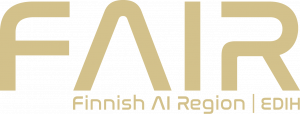
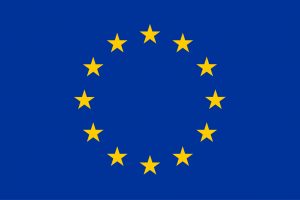
FAIR’s greetings from Barcelona - Smart Cities Driving a Sustainable Future
The Smart City Expo World Congress (SCEWC) held in Barcelona centered on the theme “Live Better,” emphasizing climate resilience and sustainability in urban environments by using the newest technologies. Read about the hot topics of the Congress, the role of AI in climate adaption and green urban transformation.
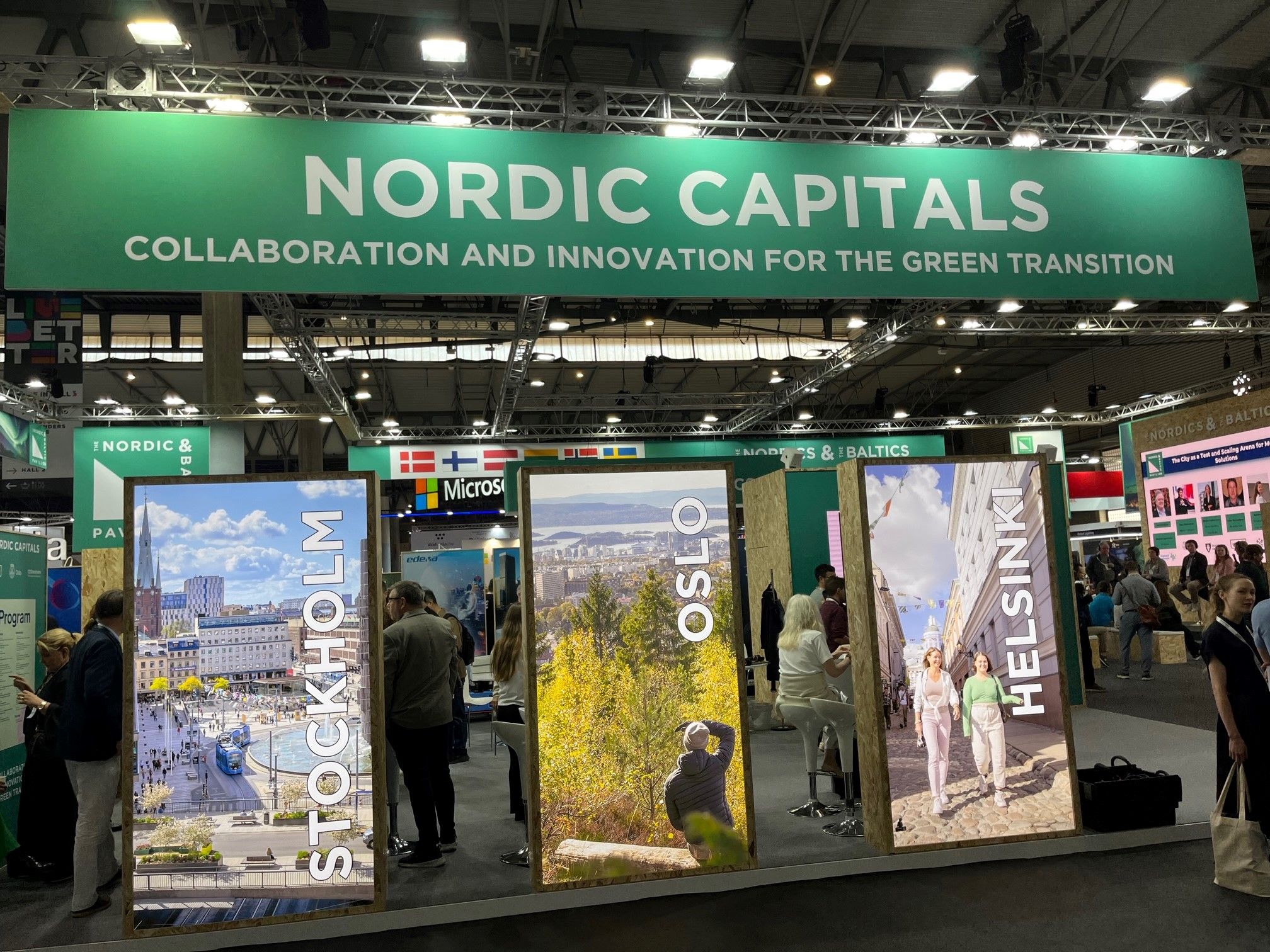
17.12.2024, Anna Lunden

The Smart City Expo World Congress (SCEWC), held in November in Barcelona highlighted the theme “Live Better,” emphasizing sustainability and resilience in urban environments. This was particularly timely, as just weeks earlier, the Valencia region had experienced devastating flash floods caused by a DANA (Isolated Depression at High Levels), resulting in over 200 fatalities and extensive infrastructure damage.
During the event, discussions focused on the role of smart cities and innovations in creating safer, more sustainable urban environments. Key themes included green urban transformation, AI-driven climate adaptation, and technologies that optimize urban services while reducing environmental impact.
FAIR attended the event to explore the use of AI in construction and sustainable urban planning while engaging with the wide international network of European Innovation Hubs and AI-driven companies and was promoting the concept of cities as testbeds for innovation.
“We aim to expand and accelerate the adoption of AI in SMEs and thus develop societal AI expertise. We want to improve the competitiveness of companies both in Finland and in global markets. The Smart City Expo is an excellent opportunity for extensive networking”, says Solja Sulkunen, Project Manager at FAIR
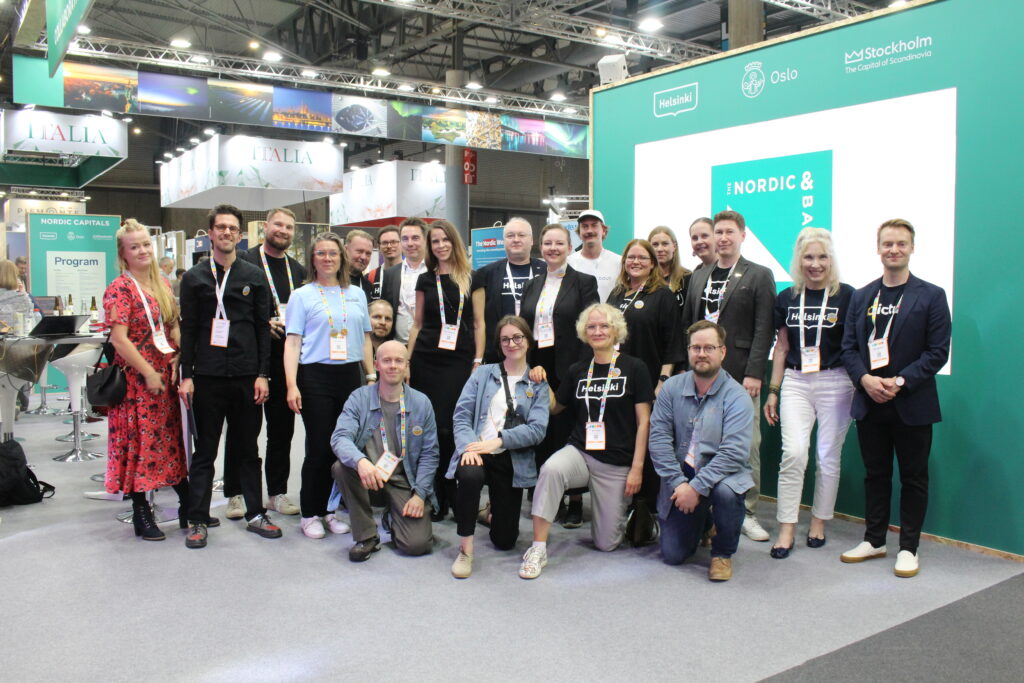
From Artificial to Collective Intelligence: The Role of Cities in Fighting Climate Change
FAIR participated in the congress together with Business Helsinki, which represented Nordic capitals alongside Stockholm and Oslo at the Nordic Capitals pavilion. As urbanization accelerates and cities contribute significantly to emissions, the event raised an important question: What can cities do to drive sustainable development?
The Nordics and Baltics Pavilion highlighted how trust in Nordic cities as sustainability leaders brings both responsibility and the need for shared goals, regulations, and frameworks, particularly in advancing the green economy. Discussions also explored how cities can involve citizens and communities in achieving sustainability goals—solutions with broad public support are often the most impactful and enduring.
One notable initiative showcased was Helsinki’s Testbed program, where businesses, including FAIR’s clients, test new innovations in real-life environments together with end users. Helsinki aims to be carbon neutral by 2030, and achieving this goal requires collaboration between cities, residents, and businesses alike.
Startups Driving Change Alongside Cities
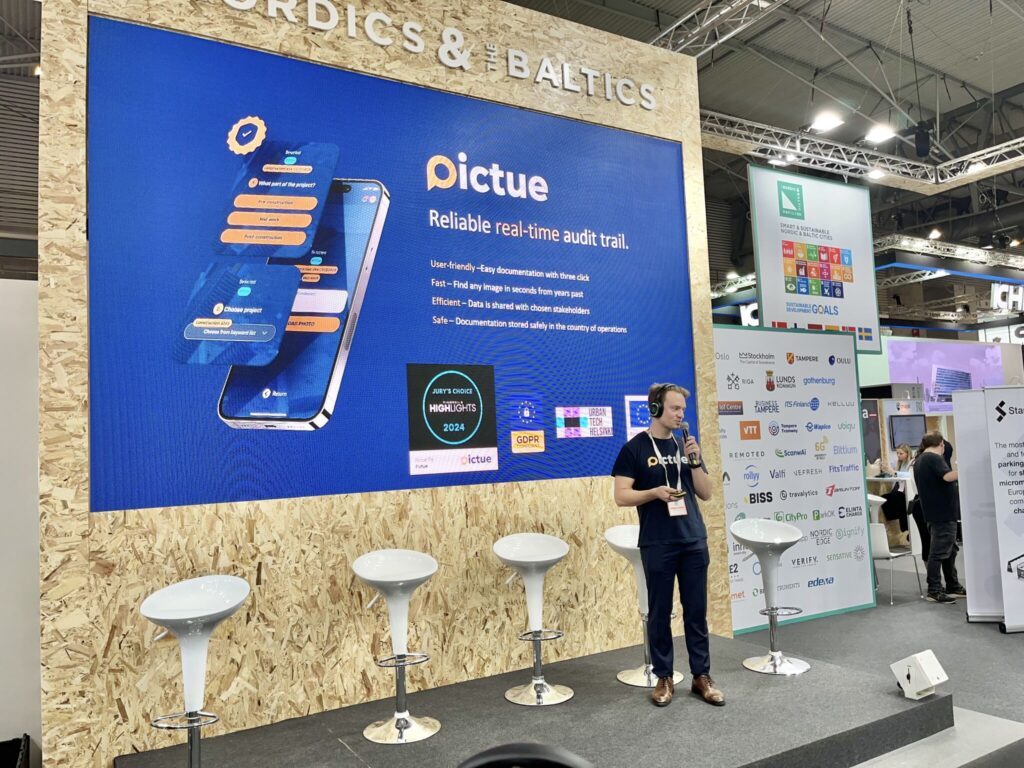
A group of over ten companies from the Helsinki metropolitan area joined the trip, including Pictue, one of FAIR’s clients. Pictue demonstrated its app, which allows vast amounts of images and data to be collected and shared via smartphone within seconds, significantly improving workflow efficiency with the help of AI for example in construction sides, health care or in the field of technology development.
“The expo was an excellent opportunity to network with European cities and businesses, learn about their practices, and identify future partners and market opportunities. The Finnish delegation and well-organized program made the trip exceptional,” said Ville Hyvärinen, CEO of Pictue.
Companies attending the event with Business Helsinki’s Innovation Team showcased solutions for circular construction, energy efficiency, and smart mobility. Business Helsinki’s Head of Corporate Services Paula Miettinen described the expo as invaluable for businesses:
“The Smart City Expo provided companies with a chance to network with sustainability professionals and present their solutions to international markets. The city supported companies with pitching opportunities and helped them connect with key stakeholders.”
Deep Tech: AI’s Role in Sustainability and Health
At the Deep Tech Stage, panelists explored the role of AI-driven solutions in building sustainable cities. Examples included AI tools that detect unusual water levels in real time, helping cities prevent flooding and improve climate resilience.
The discussion also delved into healthcare advancements powered by AI. Jack Parker, CEO and co-founder of AIATELLA, one of FAIR’s clients, participated in a panel on medical technology. AIATELLA specializes in automating medical image analysis with AI. Parker highlighted the importance of transparency and adaptability in the fast evolving use and development of AI:
“We learn by experimenting and making mistakes. AI solutions are always context-specific—what works in Finland may not work elsewhere.”
Parker emphasized that while AI holds immense potential, regulation and testing are crucial to ensuring safe and effective adoption in real-world applications.
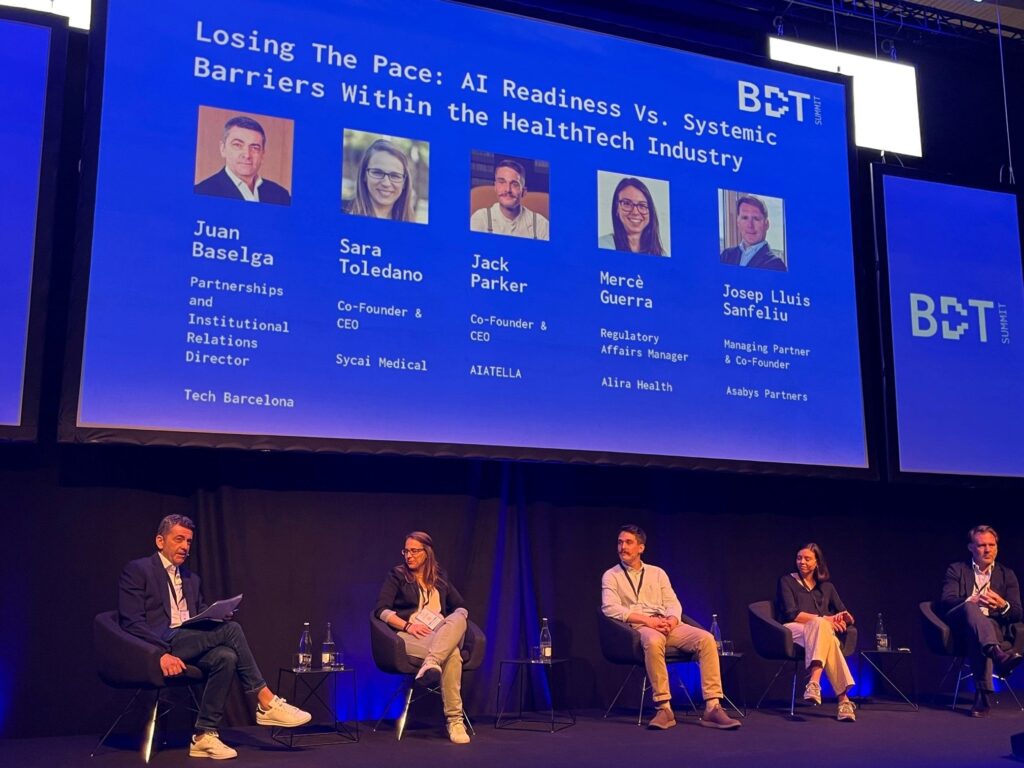
While Barcelona explored the role of cities in fostering sustainable lifestyles, the Deep Tech and Blue Economy stages underscored the critical need to protect the oceans that dominate our planet and shape urban living. The Blue Economy focuses not only on conservation but also on discovering innovations by leveraging the vast marine ecosystem. Discussions emphasized the emerging field of “ocean’s intelligence,” which remains largely unexplored but is now being actively studied using tools like artificial intelligence to gather data and create new solutions.
Oceans and coastal ecosystems offer immense potential, from carbon storage to renewable energy through algae-based biofuels and carbon capture technologies. With over 70 percent of Earth’s surface covered by water and only a fraction studied, the opportunities for innovation are limitless—if we act decisively.
***
The Smart City Expo showcased the essential role of cities, businesses, and technology in tackling climate challenges. Events like these demonstrate how collective intelligence can drive innovation and create more sustainable, resilient cities for the future.
Contact Person

Solja Sulkunen
Project Manager
+358 40 153 5635
solja.sulkunen@hel.fi
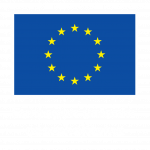
Finnish AI Region
2022-2025.
Media contacts